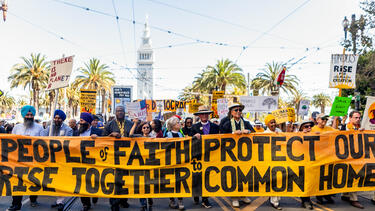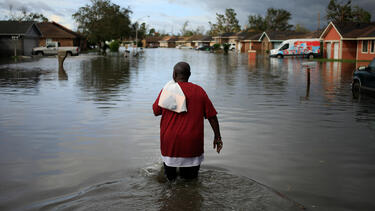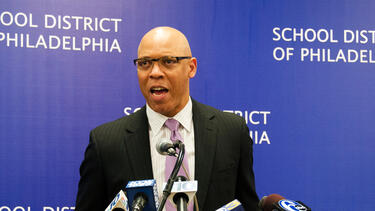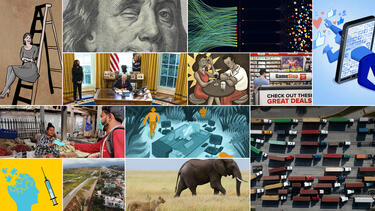All Insights Articles
Beyond Resolutions: Research-Based Suggestions for 2022
We asked faculty from the Yale School of Management for their advice—philosophical, professional, and personal—for our readers for the coming year.

Can Faith Power Social Change?
A collaboration between the nonprofit Ashoka and Trinity Church Wall Street, launched by Anne Evans ’78, aims to harness the passion among people of faith for making positive change.

A Year Later, Most CEOs Are Keeping Their Post-Insurrection Promises
Recent news stories have asserted that corporate leaders are reneging on their pledges to withhold contributions to members of Congress who voted against certifying election results on January 6, 2021. But Yale SOM's Jeffrey Sonnenfeld, who hosted one of the meetings where those pledges were made, writes that CEOs remain deeply troubled by threats to democracy, and that campaign records show that most corporate PACs aren't giving to election objectors.

Can Mergers and Acquisitions Reduce Employee Misconduct?
New research co-authored by Prof. Heather Tookes looks at whether employee misconduct in the highly regulated investment advisory industry goes down after a merger, potentially making the combined company more valuable.

Tallying the Social Cost of Carbon
Casey Pickett ’11, director of the Yale Carbon Charge, explains how to put a dollar value on the myriad choices that make up our response to the climate crisis.

How the Philadelphia Schools Confronted Systemic Racism
William Hite, Philadelphia’s superintendent of schools, describes how the system sought to create an inclusive process for rooting racism out of its structures.

A Look Back at 2021 through Our Top Stories
This year, many of our most-read stories examined facets of the continuing COVID-19 pandemic, including the challenges of vaccination, the return to in-person work, the effectiveness of masks, and the bottleneck in the supply chain.

Navigating a New Now: Time to Prioritize Company Culture
Laszlo Bock ’99, founder and CEO of Humu, highlights the importance of company culture for keeping workers motivated and delivering results despite the challenges of the moment.

Is Climate Risk More than Markets Can Handle?
Yale SOM finance professor Stefano Giglio lays out the unique complications of grappling with climate risk, and explains his own work on stock portfolios that hedge climate change.

Is the Fed Ready for the Next Financial Crisis?
Yale SOM’s June Rhee discusses how the lessons of the global financial crisis prepared policymakers for COVID, and what tools they’ll need for future crises.
